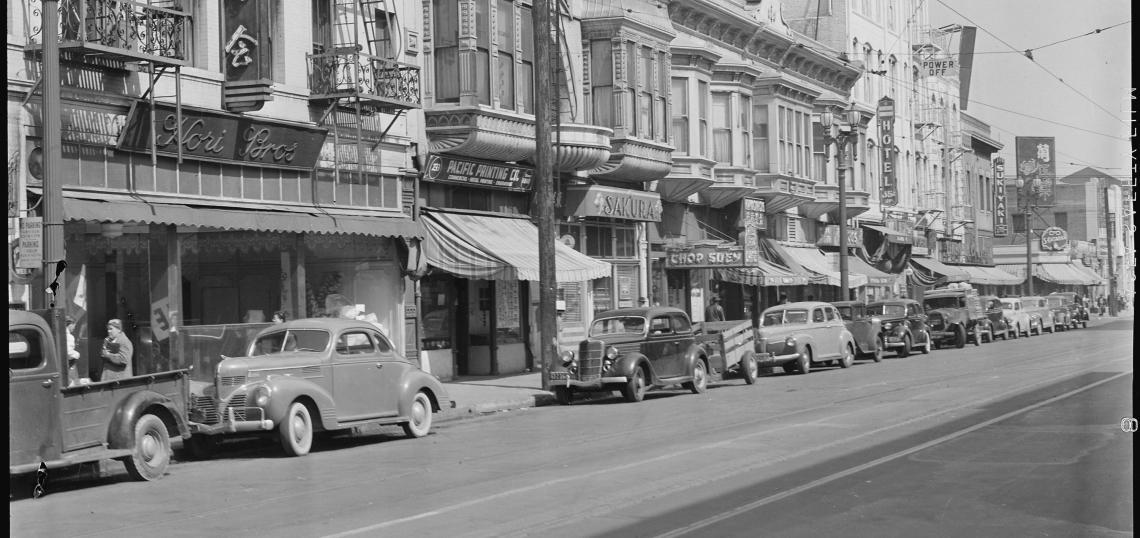Things to read from the past week:
- Advocates say homeless hotel program discriminates against disabled people: "In a scathing letter sent earlier this month to the Los Angeles Homeless Services Authority and copied to dozens of city and county officials, the advocates alleged that in selecting which people to move into hotel rooms through Project Roomkey, the agency has deliberately excluded those who cannot handle on their own basic activities, such as going to the toilet or getting out of bed." (LA Times)
- Mayor Garcetti extends relaxed parking enforcement until October 1: "In addition to these steps, Angelenos will not face parking fine increases when failing to pay a ticket. Residents will also be given extended grace periods for residential and commercial drop off or pick up; granted extensions on all deadlines for payments; and offered temporary permits that can be printed at home for those who have renewed their permit but will not receive the new hangtag before their current permit expires." (LA Mayor)
- Whack-a-Mole Urban Planning in Los Angeles Is Not Working: "The term “whack-a-mole” describes a situation where solving one problem piecemeal results in a temporary fix that causes the sudden appearance of an equally vexing problem. This characterizes recent attempts to solve greater Los Angeles’ persistent urban challenges: affordable housing, equity injustices, gentrification, traffic, air pollution, climate change." (Common Edge)
- Death Valley hits 130 degrees, thought to be highest temperature on Earth in over a century: "Multiple daily heat records were set Saturday. The National Weather Service reported a high of 112 in Woodland Hills, breaking the record of 108 set in 1977, and a high of 92 at UCLA, breaking the record of 90 set in 2003. Downtown Los Angeles hit 98 degrees, tying a record set in 1994." (LA Times)
- Does L.A. count its homeless, or make its best guess? A little of both, it turns out: "Not only do the numbers change from year to year, presumably reflecting real shifts in the homeless population, but, once published, they can change months or years later — based not on actual changes in the population, but on changes in how it’s calculated." (LA Times)
- Uber Considers Franchising in Response to California Labor Law: "In another sign that a new law in California could force dramatic changes to ride-hailing in the state, Uber Technologies Inc. said it’s considering licensing the brand to independently operated franchises. The move would create distance between the ride-hailing company and its drivers and would serve as an alternative to classifying them as employees." (Bloomberg)
- What Happened When Homeless Men Moved Into a Liberal Neighborhood: "The controversy comes at a moment of national ferment over systemic racism, economic stratification and the disproportionate impact of the virus on people of color and the poor." (New York Times)
- For Japanese-Americans, Housing Injustices Outlived Internment: "In 1945, thousands were released from the internment camps. But they couldn't return to the world they had left." (New York Times Magazine)
- Getting Old Needs a New Look: Covid-19 has exposed the lethal vulnerabilities of nursing homes and assisted-living facilities. Can better design make aging safer? (CityLab)
- The Education—and Miseducation—of an Urban Planner: "The building blocks of cities comprise more than structures, streets, and sidewalks, but equally encompass personal experience, collective memory, and aspirations. While less tangible and more difficult to measure, these aspects are what transform infrastructure, mere physical objects, into place, a sense of belonging—community. And yet these more ephemeral ways of understanding are discounted within conventional planning practice and education." (Common Edge)
- No deal yet in Sacramento to help struggling California renters: "With less than two weeks before a statewide moratorium on renter evictions expires, California lawmakers on Thursday declined to back a plan that would have provided tax credits for landlords while sending a separate proposal that would protect tenants back for additional negotiations with Gov. Gavin Newsom." (LA Times)






